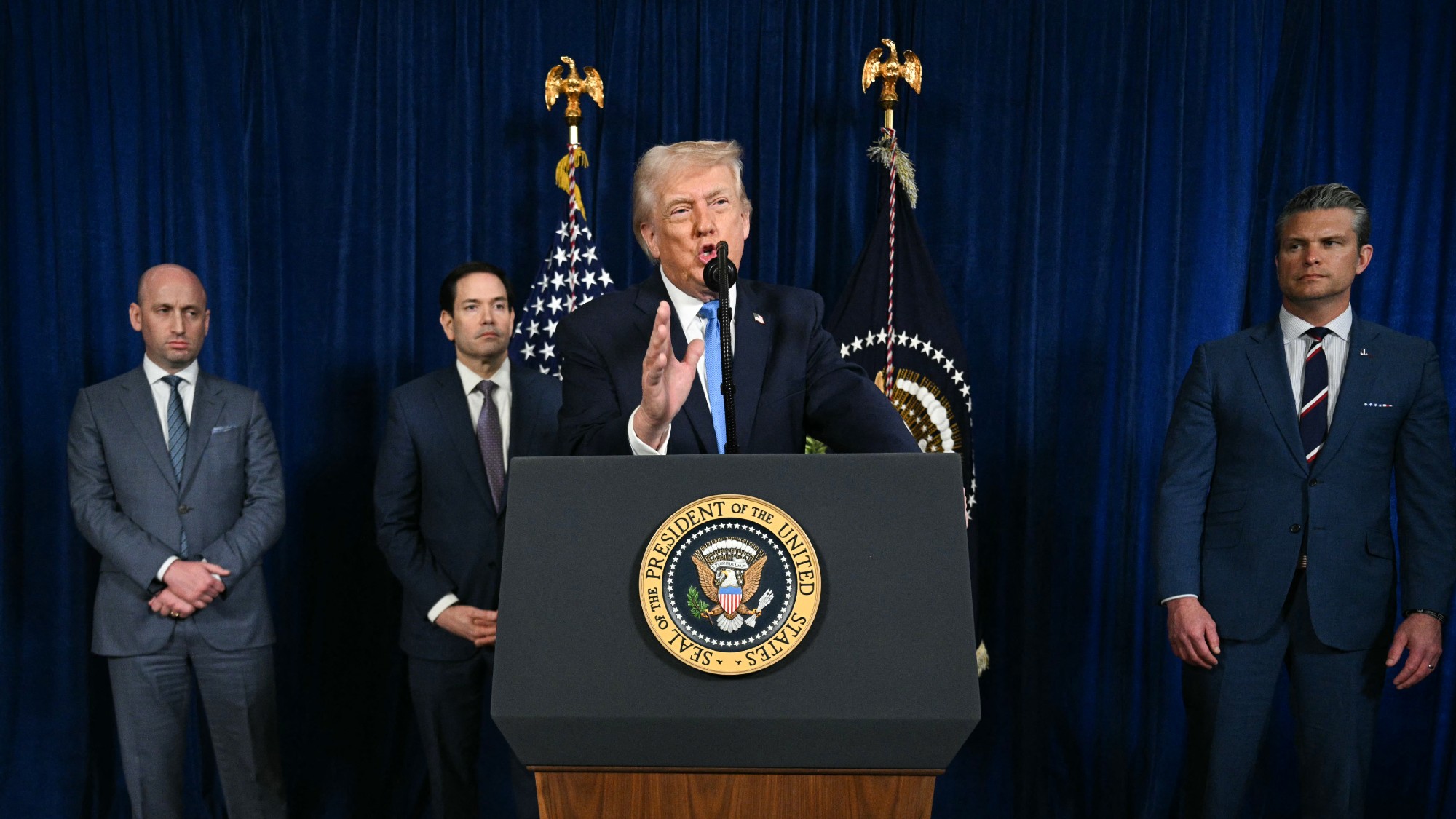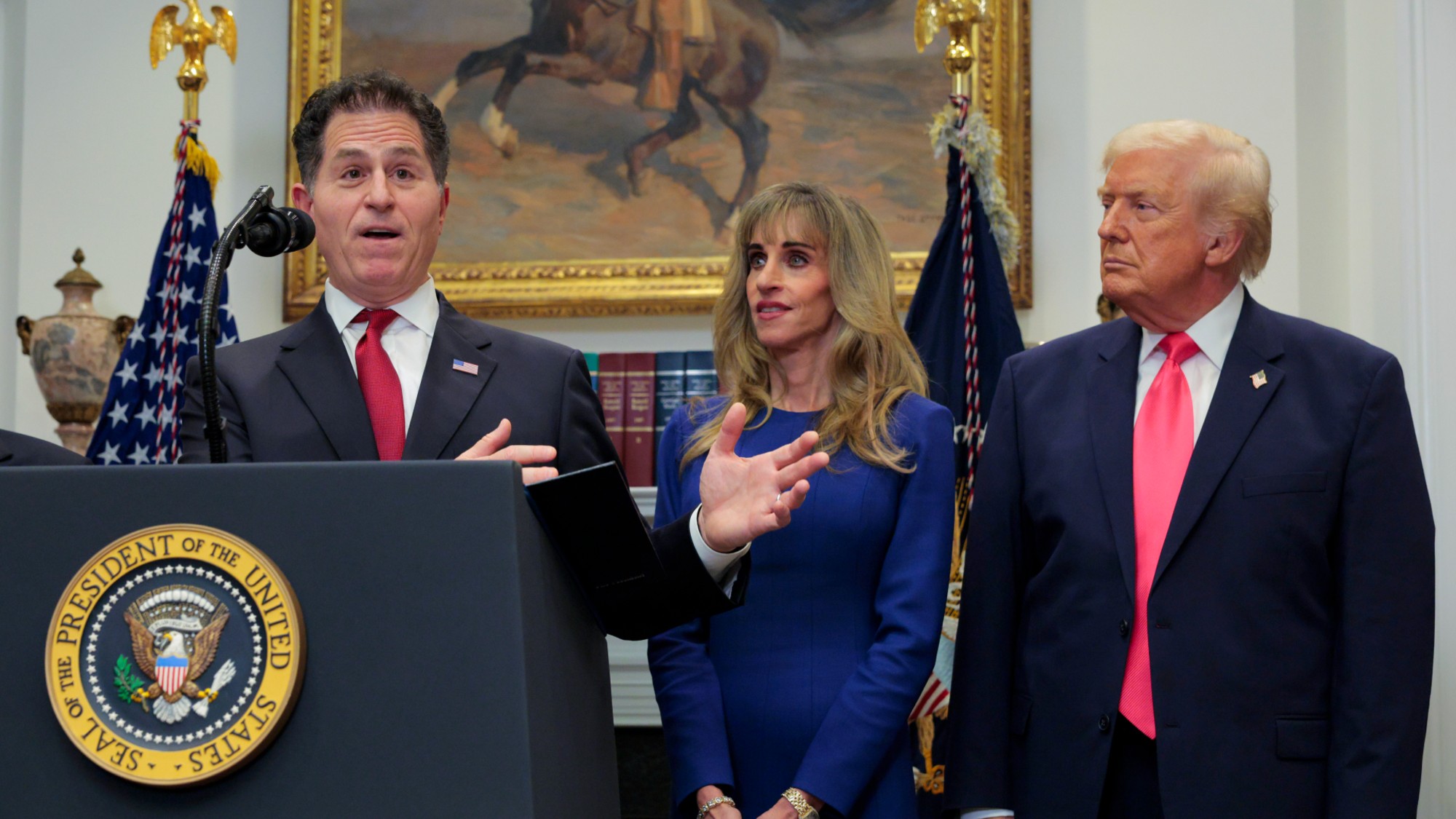UK could join bombing runs against IS at end of next week
William Hague makes it clear that prior approval from Parliament would not be necessary

A free daily email with the biggest news stories of the day – and the best features from TheWeek.com
You are now subscribed
Your newsletter sign-up was successful
Military action by Britain against IS targets in Iraq could be sanctioned by David Cameron within a week – and without formal prior approval by Parliament, The Mole understands.
Many thought that Cameron's decision to seek prior approval for action against Syria last year marked an historic change to give Parliament the power to veto air strikes, but William Hague, Leader of the House, told MPs yesterday that Cameron could sanction action and seek approval later.
He said: "It is clear that in an emergency or to meet a treaty obligation or to save life in a dramatic situation such as arose in Libya in 2011, it is possible for the government to take action and then come to Parliament as soon as possible after that.”
The Week
Escape your echo chamber. Get the facts behind the news, plus analysis from multiple perspectives.

Sign up for The Week's Free Newsletters
From our morning news briefing to a weekly Good News Newsletter, get the best of The Week delivered directly to your inbox.
From our morning news briefing to a weekly Good News Newsletter, get the best of The Week delivered directly to your inbox.
That "emergency" will come about if the new Baghdad government is formed next Thursday – as is planned – and immediately asks Britain for help. With the House rising on Friday for the party conference season, and without a "war vote" planned before then, it could be mid-October before MPs come together again.
In the meantime, the government’s Chief Whip, Michael Gove, has been taking soundings on Tory support for military action and is believed to be reporting back that unlike last year's Syria vote, Conservatives are solidly in support of air strikes, though not boots on the ground.
Dominic Grieve, the former Attorney General, said the majority of Conservative MPs support military action. "My impression is that my colleagues... take the view that what's happening in Iraq and Syria is a serious violation of human rights, tantamount to something not very far off genocide."
Following the beheadings two US journalists, James Foley and Steven Sotloff, and the threat to execute a British aid worker, Labour and Lib Dem MPs are also considered much more likely to sanction military action now than they were over Syria, as long as Cameron and President Obama can deliver their regional "coalition of the willing", so that the attacks do not look like a western-led crusade
A free daily email with the biggest news stories of the day – and the best features from TheWeek.com
Even the reluctant warrior Nick Clegg, the Lib Dem leader and Deputy PM, would go along with air strikes against IS in those circumstances. He said: “As long as we can work in concert with other countries and in support of other countries, then we should not rule out Britain continuing to play an active role in trying to... squeeze out of existence this medieval and vile movement.”
However, for the moment at least, very few MPs are ready to sanction bombing IS targets within Syria, mainly because it would require some sort of agreement with President Assad – and military experts see this as a real stumbling block to dealing with the IS threat.
As The Week’s defence correspondent Robert Fox reported earlier this week, Cameron and Obama will need to "get down and dirty" and do a deal with Assad to make sure that RAF and USAF jets are not targeted by Syria's sophisticated air defences.
Lord Richards, the former Chief of the Defence Staff, said on the Today programme this morning: "I know how difficult this [a deal with Assad] is given the rhetoric. My judgment is one way or another, you have to bring him [Assad] into this..."
Lord Richards said what was needed was a grand alliance between the US, Iran, Syria – and, crucially Russia - to develop a strategy for defeating extremist Islamic terrorism across the globe. This could be made a lot easier if the Russians agree to a ceasefire in the Ukraine today. Given President Putin’s influence over Assad, the West really needs to be on speaking terms with him again.
Footnote: Back in March 2011, William Hague, then Foreign Secretary, said he would bring forward legislation requiring Parliament to be consulted over war. "We will enshrine in law for the future the necessity of consulting Parliament on military action," he said.
But Hague and the coalition never fulfilled the promise. A House of Commons research paper shows that a number of former generals urged Hague to abandon the promise, warning it would remove an element of surprise for the armed forces and might compromise intelligence. Lord Guthrie, former Chief of the General Staff, was quoted as saying: "It would be crazy to codify it".
The barbaric beheading of western hostages, the burying of Shia muslims alive and the increased threat of terrorism at home appear to have convinced Cameron and his coalition partners that this is one promise best left broken.
-
 The best music tours to book in 2026
The best music tours to book in 2026The Week Recommends Must-see live shows to catch this year from Lily Allen to Florence + The Machine
-
 Gisèle Pelicot’s ‘extraordinarily courageous’ memoir is a ‘compelling’ read
Gisèle Pelicot’s ‘extraordinarily courageous’ memoir is a ‘compelling’ readIn the Spotlight A Hymn to Life is a ‘riveting’ account of Pelicot’s ordeal and a ‘rousing feminist manifesto’
-
 The EU’s war on fast fashion
The EU’s war on fast fashionIn the Spotlight Bloc launches investigation into Shein over sale of weapons and ‘childlike’ sex dolls, alongside efforts to tax e-commerce giants and combat textile waste
-
 How corrupt is the UK?
How corrupt is the UK?The Explainer Decline in standards ‘risks becoming a defining feature of our political culture’ as Britain falls to lowest ever score on global index
-
 The high street: Britain’s next political battleground?
The high street: Britain’s next political battleground?In the Spotlight Mass closure of shops and influx of organised crime are fuelling voter anger, and offer an opening for Reform UK
-
 What is the Donroe Doctrine?
What is the Donroe Doctrine?The Explainer Donald Trump has taken a 19th century US foreign policy and turbocharged it
-
 ‘These accounts clearly are designed as a capitalist alternative’
‘These accounts clearly are designed as a capitalist alternative’Instant Opinion Opinion, comment and editorials of the day
-
 Is a Reform-Tory pact becoming more likely?
Is a Reform-Tory pact becoming more likely?Today’s Big Question Nigel Farage’s party is ahead in the polls but still falls well short of a Commons majority, while Conservatives are still losing MPs to Reform
-
 ‘This estrangement from death has beget euphemisms’
‘This estrangement from death has beget euphemisms’Instant Opinion Opinion, comment and editorials of the day
-
 Taking the low road: why the SNP is still standing strong
Taking the low road: why the SNP is still standing strongTalking Point Party is on track for a fifth consecutive victory in May’s Holyrood election, despite controversies and plummeting support
-
 Syria’s strange post-Assad election
Syria’s strange post-Assad electionThe Explainer Sunday’s limited vote ‘suited the phase Syria is undergoing’, says interim president